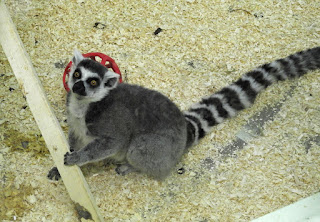NATURE MONCTON INFORMATION LINE - October 17, 2016 (Monday)
To view the photos mentioned in this edition of the Information Line, go
to http://nminfoline.blogspot.ca/
To respond by e-mail, please address your message to the information line
editor, nelson@nb.sympatico.ca
Please advise if any errors are noted in wording or photo labelling.
For more information on Nature Moncton, check the website at http://www.naturemoncton.com
Edited by : Nelson Poirier nelson@nb.sympatico.ca
Transcript by : David Christie maryspt@mac.com
Info Line # : 506-384-6397 (384-NEWS)
** Tomorrow, Tuesday, Oct. 18, is NATURE MONCTON MEETING NIGHT at the
Mapleton Park Rotary Lodge, across from Cabela’s at 7 p.m. The guest presenter
will be Jeff Clements, who will have some very up-to-date information on ocean
changes that may explain a lot of things happening at the moment. The write-up
is attached.
NATURE MONCTON OCTOBER
MEETING
Tuesday, October 18 at 7:00
PM
Guest speaker: Jeff Clements, Scientist with the Dept.
of Fisheries and Oceans
Place: MAPLETON PARK ROTARY LODGE (across from
Cabela’s)
Title: What Happens as the Oceans Become More
Acidified?
Commonly known as the “other
CO2 problem”, ocean acidification is a recently-discovered phenomenon
by which carbon dioxide (CO2) from the atmosphere dissolves into the
oceans and lowers seawater pH, causing it to become more acidic. Unfortunately,
when CO2 increases and pH drops, ocean-dwelling animals can be
affected. Furthermore, on top of ocean acidification, these animals also have to
deal with an increasingly warmer ocean and a swath of other environmental
changes! This leads to much uncertainty and concern for the future of our oceans
in a changing world.
In this talk, Jeff will introduce the
topic of ocean acidification by discussing what is and how it works, and will
highlight some of the biological, ecological and societal consequences
associated with ocean acidification. He will also talk about the current state
of ocean acidification research and will wrap up by highlighting some of the
work that he has been doing right here at home in the Bay of
Fundy.
** David Christie got a few interesting telephone calls on Sunday morning.
Doris Hatt had a female EASTERN TOWHEE [Tohi à flancs roux] appear below her
feeders at 8537 Main Street in Alma on Saturday afternoon and it was still there
Sunday morning. Eastern Towhees often have the habit of staying around a
reliable food supply so it may stay in that area; be aware of the skulky nature
of this species.
Also, John Inman had a BALTIMORE ORIOLE [Oriole de Baltimore], interested
in berries, around his 225 Mary's Point Road yard on the weekend. He also
spotted a DICKCISSEL [Dickcissel d'Amérique] on Sunday morning perched above
where he places ground feed. It did not go down to the food as a NORTHERN
GOSHAWK [Autour des palombes] flew in and put all the birds into the bushes but
the bird knows where the food is and will probably return. In some years, John
has had excellent turnouts of Dickcissels.
** It’s always amazing how WHITE-TAILED DEER [Cerf de Virginie] can adapt
to survive within a city. My daughter Christie lives in downtown Halifax, and as
she left for work on the morning of Sept. 30, she spotted several deer on the
street in her backup camera. The first photo shows a mature doe with one
yearling and two young of the year. One-year-old Deer will often rejoin their
mother at this time of year. The action didn’t stop there, as a young buck
appeared, following them, very attuned to upcoming mating opportunities.
** Aldo Dorio is continuing to see HORNED LARKS [Alouette hausse-col]
foraging in the wrack line at Hay Island, south of Néguac. Aldo also continues
to see Merlin [Faucon émerillon] in that area. More Merlins seem to be staying
with us for the winter in recent years, or maybe it’s just because they are
generally more numerous, recovering on their own from DDT days.
** AMERICAN CROWS [Corneille d'Amérique] are starting to establish winter
roosts. Ray Gauvin noted a large group of crows gathering on the east side of
the Pointe-du-Chêne bridge on Sunday evening. Ray comments that they just kept
coming and coming, reminding him of the famous, old Alfred Hitchcock movie, “The
Birds.”
** I’m attaching another series of Brian Stone’s fabulous photos from the
Nature Moncton zoo visit on Saturday. Brian has a Dropbox folder of all the
files he saved. It can be accessed at the following link
Note the big difference in plumage between the male and female OSTRICH
[Autruche]. Bruce Dougan pointed out that the dominant BARN OWL [Effraie des
clochers]] is always the highest, so the one above the rest is the dominant one.
He also commented that, in it’s native area, the MARABOU STORK [Marabout
d’Afrique] is as common as gulls are to us. A big thanks to Brian for saving so
many pleasant memories from last Saturday.
Nelson Poirier
Nature Moncton
AMERICAN CROWS.OCT 16, 2016.RAY GAUVIN
ANDEAN CONDOR. OCT. 15, 2016. BRIAN STONE
BARBARY SHEEP. OCT. 15, 2016. BRIAN STONE
BARN OWLS. OCT. 15, 2016. BRIAN STONE
BLACK SWAN 02. OCT. 15, 2016. BRIAN STONE
COLOBUS MONKEY. OCT. 15, 2016. BRIAN STONE
DROMEDARY CAMEL. OCT. 15, 2016. BRIAN STONE
DWARF CAIMAN. OCT. 15, 2016. BRIAN STONE
EAST AFRICAN CROWNED CRANE 01. OCT. 15, 2016. BRIAN STONE
HORNED LARK.OCT 16, 2016.ALDO DORIO
MANDRILL. OCT. 15, 2016. BRIAN STONE
MARIBOU STORK 02. OCT. 15, 2016. BRIAN STONE
MERLIN.OCT 16, 2016.ALDO DORIO
OSTRICH (FEMALE). OCT. 15, 2016. BRIAN STONE
OSTRICH (MALE). OCT. 15, 2016. BRIAN STONE
POULTRY IN TOUCH AREA.. OCT. 15, 2016. BRIAN STONE
RING-TAILED LEMUR. OCT. 15, 2016. BRIAN STONE
RING-TAILED LEMURS. OCT. 15, 2016. BRIAN STONE
RIVER OTTER 01. OCT. 15, 2016. BRIAN STONE
SQUIRREL MONKEY. OCT. 15, 2016. BRIAN STONE
WATUSI ( ANKOLE CATTLE ). OCT. 15, 2016. BRIAN STONE
WHITE-HANDED GIBBON 02. OCT. 15, 2016. BRIAN STONE
WHITE-TAILED DEER.a.SEPT. 30, 2016.CHRISTINE POIRIER
WHITE-TAILED DEER.a.SEPT. 30, 2016.CHRISTINE POIRIER
WOODLAND CARIBOU 01. OCT. 15, 2016. BRIAN STONE
ZEBRA (YOUNG OF YEAR). OCT. 15, 2016. BRIAN STONE

























